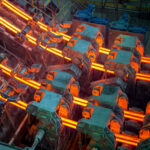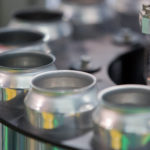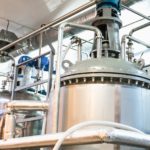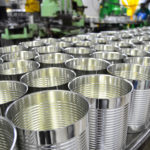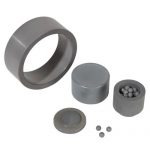Engineering ceramics occupy the cutting edge of industrial applications. They are deployed where conventional materials are prone to failure, or to refine equipment for greater throughput and profitability. Their incredibly favourable thermomechanical properties have made them a mainstay in metalworks and steel foundries for decades, where they generally offer long-lasting performance over multiple cycles—even when in direct contact with molten metals.
Continue readingTimeline of Technical Ceramics: Key Figures in History
Ceramics might be the most diverse materials ever made. Spanning the entire spectrum of manufacturing, from delicate commodities to functional electronics and heavy-duty components, they represent unique performance capabilities that have rapidly pulled away from traditional engineering materials.
Continue readingFestive Holidays Notice
International Syalons (Newcastle) Ltd. offices will be closed from Wednesday 23rd December 2020 until Tuesday 5th January 2021.
Silicon Nitride: The Future of Sensing in Harsh Environments?
Data acquisition and signal transmission within harsh environments is an ever-present pain point for manufacturers across the full spectrum of engineering. Sensors must increasingly contend with extreme mechanical and thermal stressors, which can easily result in reduced performance and even failure in the wrong conditions. The only solution is to build sensing platforms with the right material properties for the application. High-temperature applications require may require ceramic materials owing to their enhanced thermal shock resistance and/or thermal expansion properties, for example.
Continue readingCeramics UK 2020 – Leaders in Conversation: Promoting Ceramics in an International Marketplace
Following the postponement of Ceramics UK 2020 in collaboration with the Advanced Materials Show to 7th & 8th July 2021, the event organisers are instead running an exciting online Knowledge and Networking Digital Event, bringing together highly focused audiences, all involved in the research, production, purchasing or integration of advanced materials technology including Graphene & 2D Materials, Composites, Polymers, Coatings, and Ceramics.

Join moderator TTIP Consulting Managing Director Dr Andy Wynn, and panellists Lucideon CEO Tony Kinsella, British Ceramic Confederation CEO Dr Laura Cohen MBE CEng FIMMM, alongside International Syalons Technical Director Ben Melrose as they discuss Promoting Ceramics in an International Marketplace.
Can Tooling with Technical Ceramics: Silicon Nitride, Zirconia & More
Technical ceramics often conjure impressions of heavy-duty industry, chemical processing, or aerospace and defence applications. But the odds are likely that you have several commodities in your kitchen that have been formed using specialised ceramic components. We are referring to food and beverage cans.
Continue readingNew Apprentices Begin Training
International Syalons (Newcastle) Ltd. is proud to announce that two new apprentices have begun their Advanced Modern Apprenticeships alongside Tyne Metropolitan College.
Technical Ceramic Sensors: Properties & Applications
Rightly so, technical ceramics are commonly associated with harsh chemical processing, extremely high-temperature environments, and heavy-duty industry, however, in recent years, they have been increasingly employed in precision sensor applications.
Continue readingMetal Forming with Technical Ceramics: Food & Beverage Cans
Metal forming, like most of the metalworking and manufacturing chain, can be an extremely intensive process. It exploits the inherent plasticity of sheet metal to form net and near-net shapes via applied mechanical loads rather than gradual subtraction (cutting, grinding, etc.).
Continue readingSelecting the Right Milling Media: Technical Ceramics or Steel?
The grinding process is an age-old method that hasn’t changed much with time. Whether you are dealing with feed grinding or surface grinding, the same basic principles apply. Hard abrasive media is used to grind material down to finer consistencies, or to remove material for an optimal surface finish. This applies whether you are looking to achieve the ideal particle size for specific analytical methods or to prepare homogenous powders for further downstream processing.

